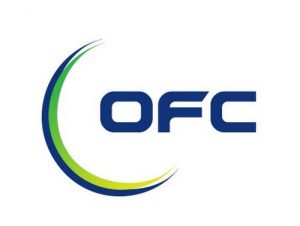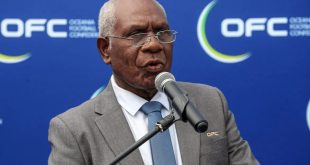 New Zealand Football recently became the first Member Association from the Pacific to have their 2021/2022 Club Licensing regulations endorsed by OFC and FIFA, and Steven Dillon hopes other countries will follow suit.
New Zealand Football recently became the first Member Association from the Pacific to have their 2021/2022 Club Licensing regulations endorsed by OFC and FIFA, and Steven Dillon hopes other countries will follow suit.
Dillon, who joined OFC as the Clubs and Leagues Officer last year, has a long-term goal of seeing Club Licensing regulations in place in all 11 Member Associations from our region in the top tier men’s, women’s and youth competitions.
Regulations can be tailor-made to meet the needs of each Member Association and generally focus on six key pillars, with many possible sub-categories.
- Sporting, which covers registered players and qualified coaches
- Infrastructure, such as having a stadium to play matches in and adequate training facilities
- Human Resources, ensuring the club have staff in key positions in a recognisable staffing structure
- Legal, making sure the club is a registered entity
- Financial, balancing the numbers and financial responsibility
- Social Responsibility, this pillar is unique to OFC and focuses on activities the club undertakes away from their senior teams such as running community football programmes or social development campaigns
Dillon has begun preliminary discussions with eight of OFC’s Member Associations and said the benefits of having a plan in place to develop clubs on and off the field were clear.
“The main thing we are trying to encourage is that we need to see strong and sustainable clubs. We are trying to protect what has been a pretty incredible history of clubs across our region that have been around for decades, if not a century,” Dillon said.
“We know with a growing shift in the professionalisation and development of sport we need to make sure that our Member Associations can help protect that and we believe that development programmes, funding, and a level of support intertwined with aspirational entry-level criteria for their national competitions is a positive step in the right direction. We are eager to help protect the clubs; not only for now, but also in the future.”
New Zealand Football recently launched a new National League structure with an aim to strengthen the game in their country.
Andy Boyens, Technical Director for New Zealand Football, said the Club Licensing regulations were an important part of that.
“Our new National League represents a significant change to our domestic league competitions, putting youth development and sustainability at the core whilst moving to align the game into one unified structure,” he said.
“Club Licensing is central to achieving our goal as we look to promote high quality environments and strong pathways for our players to progress and excel at the highest level of football in Aotearoa New Zealand.”
Dillon’s role also involves speaking regularly with FIFA regarding the future of Club Licensing in football, across both the men’s and women’s game, which had generated some positive feedback from the game’s governing body.
“FIFA commends OFC and New Zealand Football for their commitment to utilising Club Licensing as a development tool to assist and incentivise clubs to increase standards to achieve operational excellence for participation in high-level competitions,” Ornella Bellia, FIFA Head of Professional Football, said.
“We look forward to continued collaboration with OFC and all Member Associations to further develop each system in accordance with the ecosystem of each territory.”
When the borders reopen throughout the Pacific, Dillon said he intended to travel to every Member Association to conduct workshops and meet with individual clubs.
“You’ve got to understand the clubs that you’re working with and understand the context in which you’re working in and the potential impacts of any regulatory changes that you’re going to make.”
The long-term strategy for Club Licensing in the Pacific involves each Member Association having a staff member who oversees the subject and would be able to run educational workshops for clubs in their country.
OFC would continue to provide support and guidance where possible and Dillon said the Member Associations that have their regulations endorsed by OFC and FIFA would be eligible to unlock more bespoke support for future development.
 Arunava about Football A look at football & the world through my eyes!
Arunava about Football A look at football & the world through my eyes!




